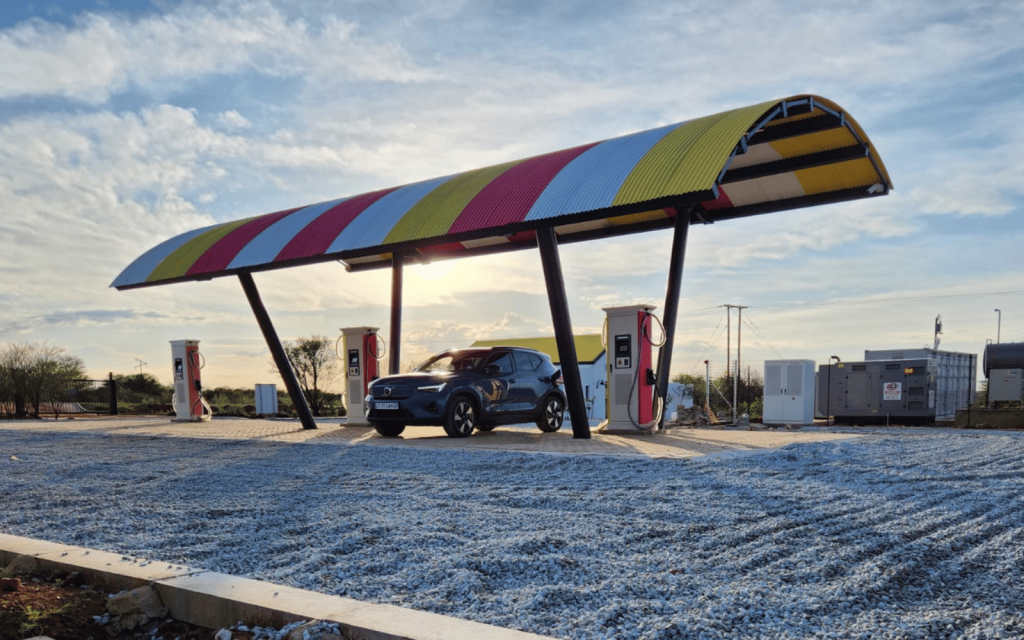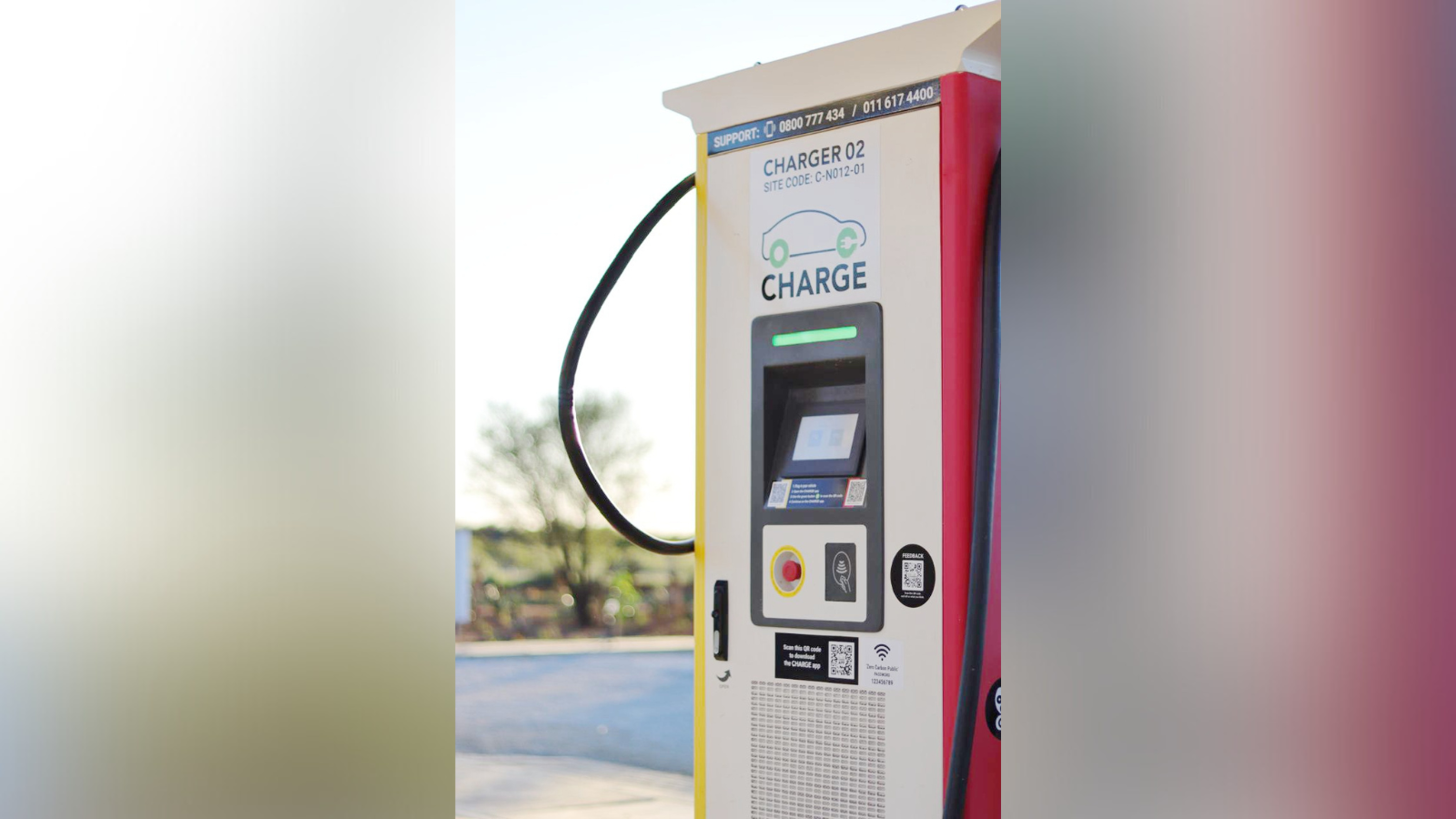Charge, formerly known as Zero Carbon Charge, has officially unveiled South Africa’s first off-grid, solar-powered electric vehicle (EV) charging station in Wolmaransstad, North West Province. The facility is the first in a planned network of 120 solar-powered charging stations that Charge intends to roll out across major highways over the next year, strategically placed 150 kilometres apart.
Large and in Charge
The Wolmaransstad station offers six advanced DC fast charging points, capable of fully charging an EV in 25 minutes, along with two AC chargers for hybrids. Drivers can enjoy drinks and a quick meal at the on-site farm stall while using the facility. Users can coordinate their short stay before and during their stay using a dedicated app, available for Android and iOS.
Deputy Minister of Electricity Samantha Graham-Maré lauded the initiative. “The project is aligned with the South African Renewable Energy Masterplan, which will be launched early next year. The plan’s focus is on renewables driving local manufacturing which will support projects such as Charge’s.”
The project has created local jobs (during construction) and will continue to do so by employing locals as station staff. Local farmers will have one more large facility in need of goods and landowners of the charging station’s plot will receive five percent of the station’s generated revenue.
Executive chairman of Charge Joubert Roux emphasized the necessity of large EV charging platforms. “We believe that the rollout of our off-grid charging stations across the country will serve as a crucial catalyst for EV migration in South Africa.”
“Charge’s own research shows that an EV charged from Eskom’s predominantly coal-fired power grid indirectly emits 5.8 tonnes of CO2 per year. In comparison, an average petrol-powered car emits only 4.4 tonnes of CO2 per year,” he added.
The ‘uncleanness’ of green energy is an underlying issue that haunts the EV industry. If EV adoption accelerates preexisting fossil fuel usage, it defeats the purpose of adopting the technology widescale. EV charging hubs relying on green energy represent the ideal of what a cleaner, greener world looks like, but that is easier said than done. Solar is susceptible to weather, and one wonders what contingencies the company has in place to avoid potential power shortfalls. We’ve reached out to ask and will provide an update when we hear back.
UPDATE: Charge got back to us with a response. On days with less-than-ideal weather, the charging stations will be equipped with generators running on hydrotreated vegetable oil (HVO). HVO is environmentally friendly, stores longer, and is more fuel-efficient, but it is more expensive, and one wonders at Charge’s capacity to maintain supply when things go wrong. On the other hand, storage will be handled by what Charge calls “a containerised battery energy storage system” made up of lithium-ion phosphate batteries, which supposedly last four to five times longer than traditional lithium-ion.






